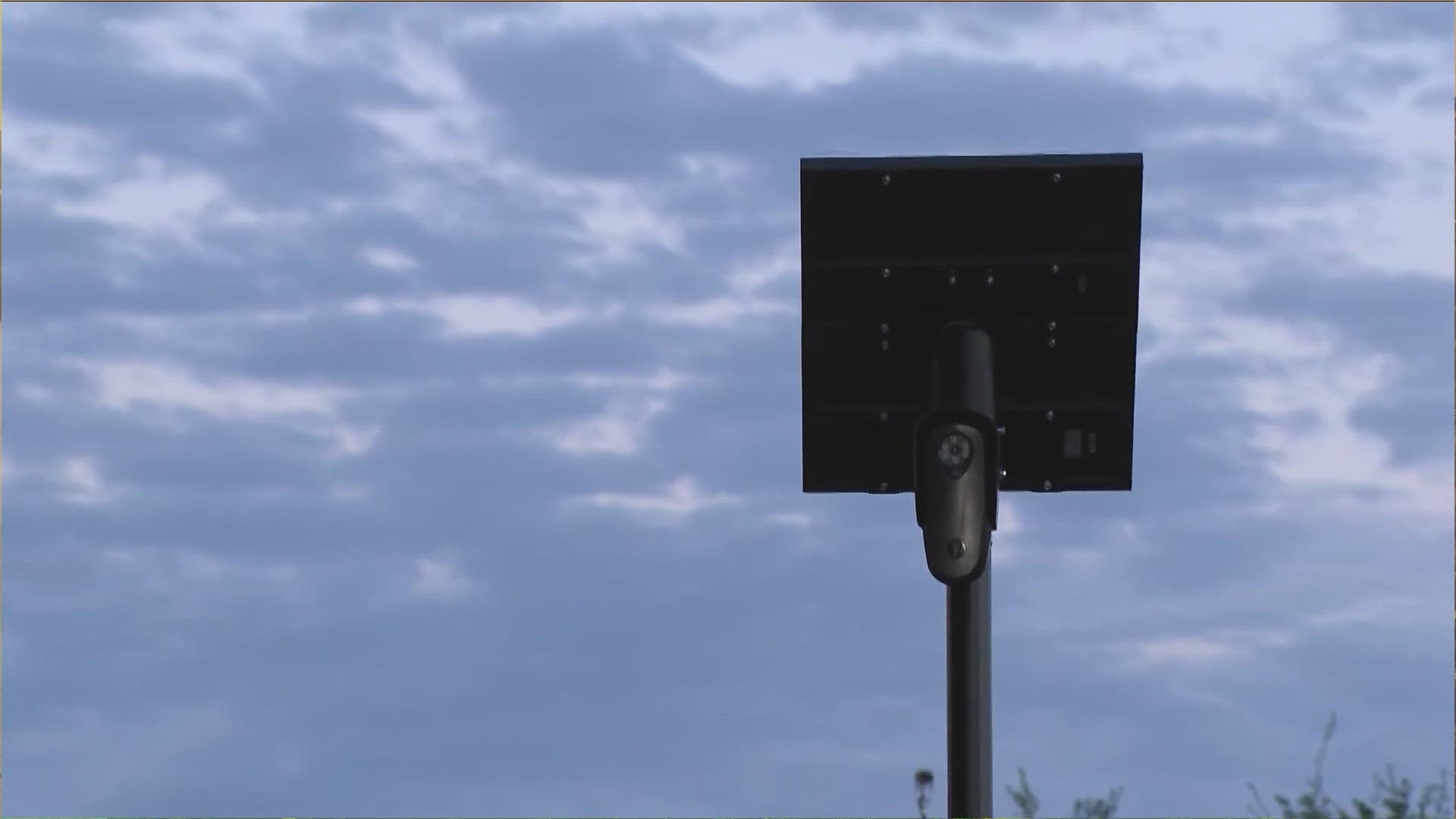AUSTIN, Texas — After a year of back-and-forth, the Austin City Council was set to vote Thursday on approving a pilot program for Austin police to use Flock Safety automated license plate readers (ALPRs). However, the council decided to postpone the vote to June 1.
"It's absolutely a force multiplier," Assistant Police Chief Jeff Greenwalt said of the cameras. "ALPR systems help us solve crimes quicker."
Greenwalt said the cameras would pick up some of the burdens of the police department's staffing shortage.
An ALPR is a camera that snaps a photo of every vehicle passing by, along with a timestamp. It then pings police when a license plate is involved in certain investigations, like a missing person case or a crime that's at least a Class A misdemeanor.
"We're not using it for Class C tickets and warrant roundups and that sort of thing," Greenwalt said. "But [if] there's a misdemeanor crime such as theft or an assault or graffiti or something like that, it is possible, if somebody has a warrant out for their arrest, that we might use the system to help find them."
When it comes to working with the U.S. Immigration and Customs Enforcement, or ICE, Greenwalt said APD doesn't really enforce immigration laws.
"If ICE asked us to use the LPR system to help enforce immigration laws, we're just simply not going to assist unless they have some sort of a serious ongoing criminal investigation. Which, from time to time, they do. But it's not normal," he said.
The current contract calls for 40 stationary cameras.
"We're deploying the ALPR system equally around the city," Greenwalt said.
He said that's so certain neighborhoods don't feel targeted. But regardless, they will be where help is needed.
The data is purged after 30 days unless it's needed for an investigation.
If APD can move forward with the Flock Safety contract, that opens up the opportunity for it to connect to Flock cameras already installed at businesses and in neighborhoods, like cameras in Lake Pointe in southwest Austin.
As of November of 2022, there are at least 36 HOAs in Travis County using Flock safety – and that's concerning for some.
"I will be speaking to the city council tomorrow, where I will be urging a postponement of the vote," said Kevin Welch of EFF Austin, a group pushing to protect digital privacy.
Welch said the language in the policy up for approval isn't as strong as the resolution the city council approved last year, seen below.
"It also does not clarify that, per Resolution 56, data sharing means that no other law enforcement agency, even for a valid investigation, will be given direct access to the ALPR database," Welch said. "They will only be provided a copy of the data."
Officers can only use the system for relevant investigations. A quarterly audit will ensure it isn't being abused per policy.
The pilot program would stop at the end of this fiscal year unless it's extended.
Some members of the council are concerned about how long the system's data is stored and want to take a closer look at the policy on the table. Other members were ready to vote Thursday, saying there has been enough discussion on the pilot program. Ultimately, the council decided to postpone the vote to June 1.

